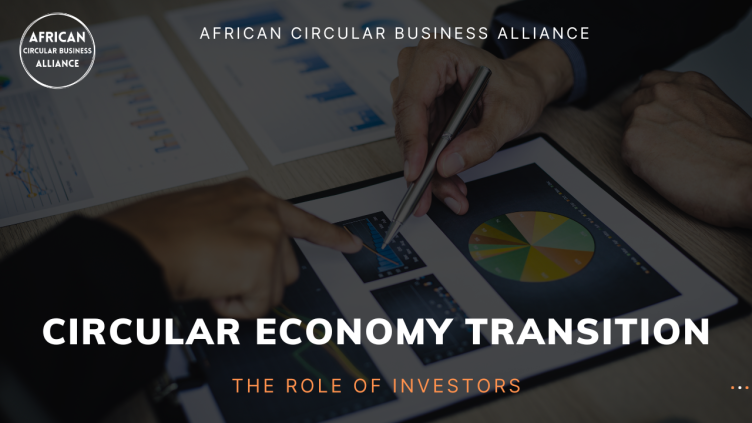
In recent years, the concept of circular economy has gained a lot of traction, and for good reason. Investing in circular businesses and startups can not only yield financial returns but can also contribute to social and economic development. Circular economy is an alternative to traditional linear economy, where resources are extracted, used and disposed of. In a circular economy, waste and pollution are minimized, and resources are kept in use for as long as possible. Circular businesses and startups are designed to operate within the principles of a circular economy, and as such, they can play a significant role in promoting sustainable development and improving social welfare.
One of the ways investors can support socioeconomic development is by investing in circular businesses and startups that focus on providing solutions to environmental problems. These businesses seek to reduce waste and pollution, promote recycling and reuse of materials, and ensure sustainable consumption and production. For instance, investing in companies that produce sustainable packaging, clean energy, and sustainable transport or offer waste management solutions can help reduce the environmental impact of traditional manufacturing, mobility and waste management practices.
Investing in circular businesses and startups can also help create jobs and support economic growth. Circular economy requires new approaches to production, distribution, and consumption, which creates opportunities for innovation and entrepreneurship. Startups that offer innovative solutions to environmental challenges can create new markets and generate employment opportunities. Investors can support such businesses by providing funding, mentorship, and networking opportunities, which can help them grow and expand.
Another way investors can support socioeconomic development is by investing in businesses that promote social inclusion and equity. Circular economy can play a role in reducing inequality by creating opportunities for marginalized communities and promoting access to resources. For instance, investing in companies that offer affordable and sustainable housing solutions or provide access to renewable energy can help address some of the challenges facing low-income communities.
Investing in circular businesses and startups can also promote collaboration and partnerships between different stakeholders. Circular economy requires cooperation and engagement among businesses, governments, and communities. Investors can play a role in facilitating such partnerships by bringing together different stakeholders and supporting initiatives that promote sustainable development.
In conclusion, investing in circular businesses and startups can offer more than just financial returns. It can also support socioeconomic development by promoting sustainable development, creating jobs, reducing inequality, and fostering collaboration and partnerships. Investors have a critical role to play in supporting such businesses and driving positive change in society. By investing in circular economy, they can contribute to building a more sustainable and inclusive future.
